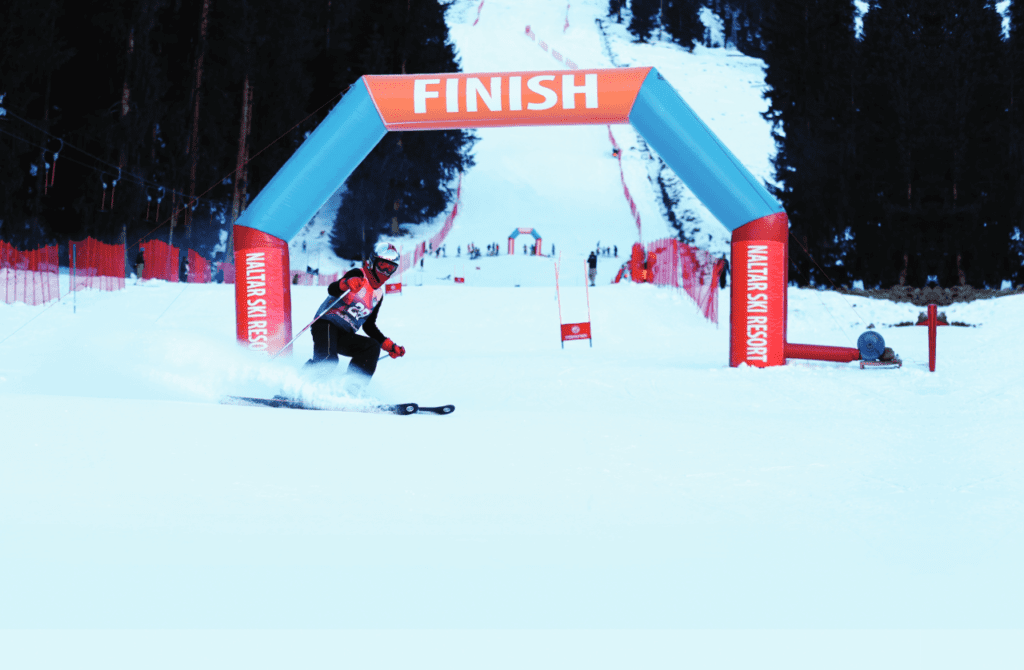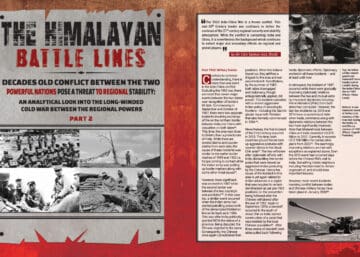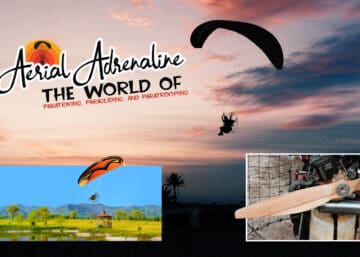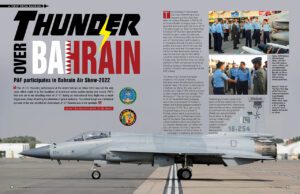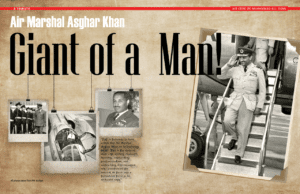With some of the highest peaks above 8,000 meters in the world that pierce into the horizon, Pakistan offers thousands of meters of vertiginous verticals that mountaineers, trekkers and skiers dream about.
At the confluence of the Karakorum and the Hindukush mountain ranges in northern Pakistan surrounded by hundred percent nature and total quietness, Naltar Valley has plenty of credentials to stand out among the world’s many ski resorts.
Some 15,000 feet (4, 500 meters) above sea level and 40 kilometers from Gilgit city, slopes of Naltar Valley offers acres of ski-able terrain where merchants of speed, both men and women challenge
themselves. Making the best of these and so many more variables, the Winter Sports Federation of Pakistan has transformed the verticals of Naltar Valley into competition grounds for alpine and Nordic style skiing, world famous events such as Slalom and Giant Slalom, with plans to host the world’s highest mountain marathon.

“One thing that was instantly obvious to us with Naltar Valley, was just how good it looks. Just spending a minute or two appreciating the scenery and noticing all the finer details is the perfect way to let your heart rate settle before pushing the limits of gravity on skis,” Jan Jakubco in Slovakia Ski Team said when he described the winter races in Naltar as one of the best he had ever participated in.
It was here in Naltar valley that another locked door swung open and the sport of skiing took root in Pakistan for the first time. Soon after the partition of India in 1947, the Pakistan Air Force senior leadership decided to establish a mountain training school for its air crew in the idealistic valley of Naltar. In 1958, a young air force officer Flt Lt Shah Khan, was tasked to setup a snow survival school for the personnel of PAF. The visionary Shah Khan, included the sport of alpine skiing in the snow survival curriculum and then set about developing the ski slopes and installing the ski lifts.
Two other men who helped Shah Khan develop the ski facility were Sergeant Iftikhar Hussain and Warrant Officer Chohan. The first lift was installed in 1962 in Naltar. Soon a newly developed slope was buzzing with activity as the officers and men started getting their ski training under the meticulous eye of Flt Lt Shah Khan.
It was not long before the locals from Naltar valley who had been using improvised wooden skis since old times flocked to the slope to witness the new sport with modern ski equipment. Pakistan Air Force welcomed the curious locals, equipped them with modern gear and soon they were training alongside the air force personnel. As the sport of skiing progressed and more people were trained, inter-base competitions and championships between different civil and military organizations became a regular feature.

From such humble beginnings, today Pakistan is home to four operational ski setups that may not be known for their glitz yet, but there is no questioning the ski challenges of their surrounding mountains. The ski resorts in Naltar and Malam Jabba, both have state of the art skiing facilities. The ski slopes at the Pakistan Air Force base in Kalabagh close to the famous hill station of Nathia Gali, and a mountain warfare school run by the Pakistan army are simple training facilities mostly used to teach and groom budding skiers.
In the valley of Naltar, the 1.5 km main slope has been christened as the Shah Khan ski slope. With a slope angle of 35o and a 500-meters plus vertical drop, it is a descent to be reckoned with. Fit for the unique Super G competitions, the Shah Khan slope is carefully maintained and groomed by the latest snow pressing machines to match the standards of the International Ski Federation (FIS) up to the year 2025. Besides the tow lift that can pull 100 skiers up the slope, there is also a ski lift that transports athletes all the way up to the top of the mountain in just 13 minutes, with safety as top most priority. With these new upgrades in the last four to five years, Naltar’s ski slopes, managed by Ski Federation of Pakistan has all the amenities that are essential for the skiers to ski safely and enjoyably.
The ski set up in Naltar is also home to a snow survival school where search and rescue techniques and snow survival courses are regularly conducted for the personnel of Pakistan Air Force.
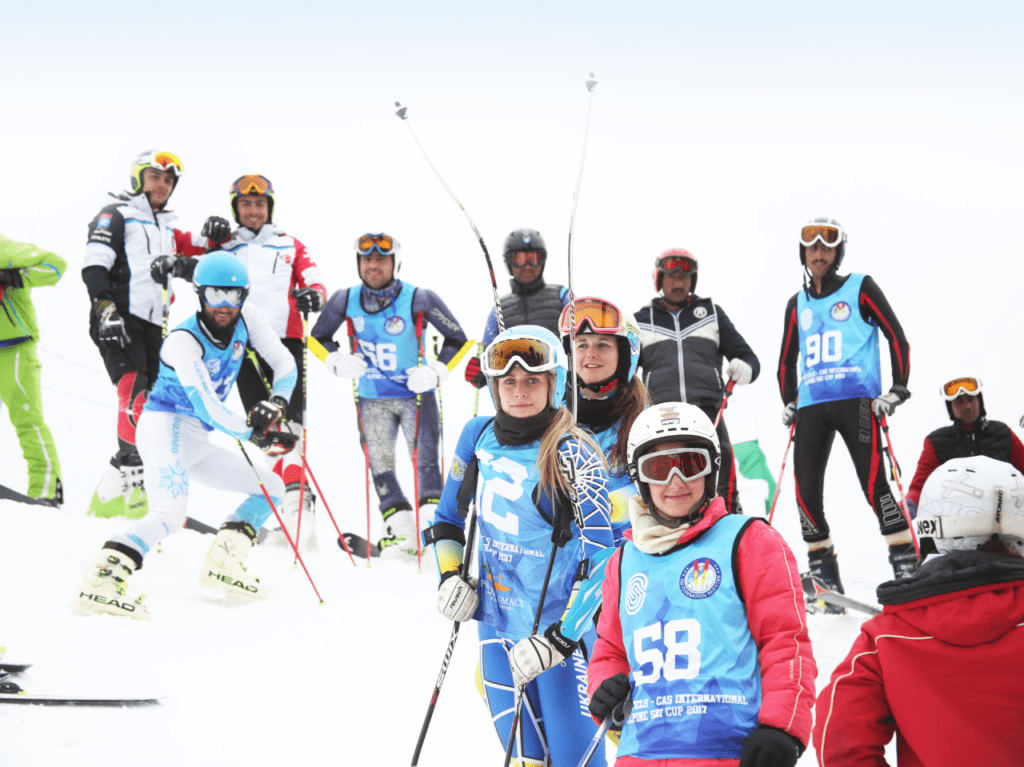
In the early 1990s, the Pakistan Tourism Development Corporation (PTDC) with assistance from the Austrian government built the first civilian ski resort of international eminence at Malam Jabba in Swat Valley, known for its scenery and glorious powder. The resort provided a unique opportunity to the general public to learn skiing.
The resort also boasts a high-end ski slope, which gives skiers one of the most playful and intense downhill experiences. A ski lift caters to the needs of ski enthusiasts and general tourists in the winter season.
The Ski Federation of Pakistan (renamed as Winter Sports Federation in 2018), which was formed in 1990 under the patronage of Pakistan Air Force to promote and develop the sport of skiing was soon affiliated with the International Ski Federation. The Winter Sports Federation known for hosting the first national skiing championship 1991, as it will again this season, works as an umbrella organization for a plethora of civil and military ski associations across the country.
The Sadia Khan National Ski Cup is an epic testing ground for aspiring women skiers to polish their skills for speed events every year. This championship is held in the memory of Sadia Khan (1977-2002), a young and budding ski star who died in an unfortunate car accident.
To watch the next wave come through and get on to the global stage, the Winter Sports Federation is keen to encourage and promote female participation. It has trained many female skiers who have competed in national and international skiing championships at home and abroad. As a sport, skiing has a lot of passion around it that is evident from the success of the Wali sisters who have competed and won gold and silver medals in national and international events.
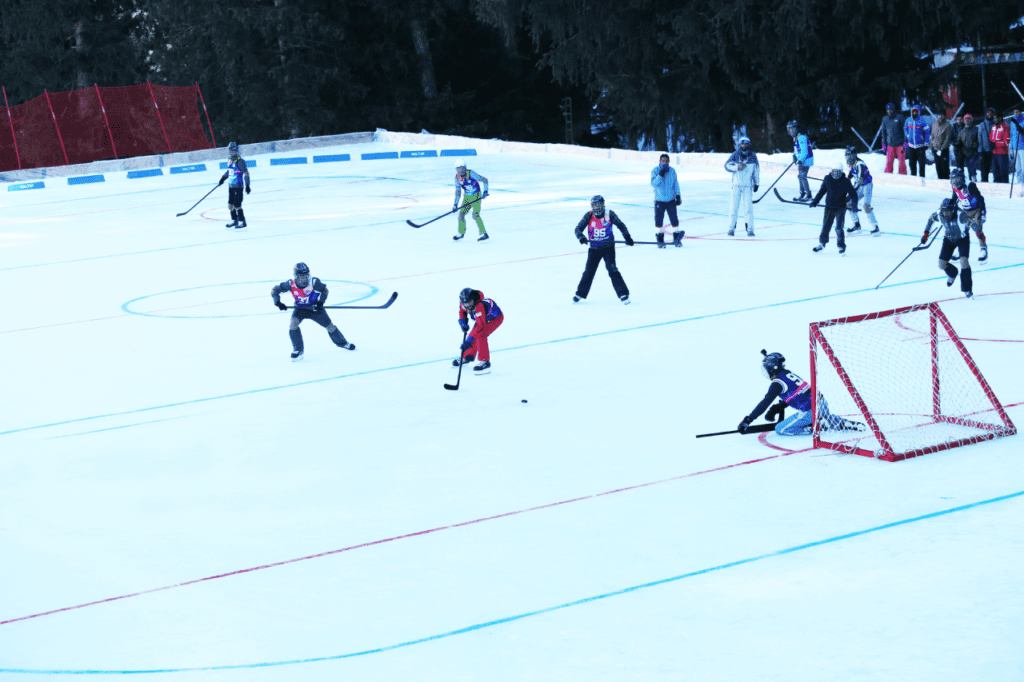
“Every year I get to see new faces in the national championships and the Sadia Khan Ski Cup. A lot of people have started taking interest and the sport of skiing is evolving rapidly,” said one of the country’s top ranking skier Ifra Wali.
With the development of the outstanding and varied terrain at the ski resort in Naltar and keen efforts from Winter Sports Federation of Pakistan, to train and groom skiers of international ranking a new chapter opened up in the progression of skiing in the country. Pakistan entered the arena of international skiing when Muhammad Abbas, a native of Naltar Village qualified and participated in the Winter Olympics Games held in Vancouver Canada in the year 2010.
To get to this point, Abbas, born and raised in a modest home in the village of Naltar, grew up slip sliding on his homemade skis carved out of wood. As a kid, he used to watch the skiers on the slopes of Naltar and harbored dreams of becoming a skiing hero one day. From then on he has spent most of his years on skis.
Turning his hobby into a dream job has been a privilege for another top skier, also hailing from Naltar. Specialist down-hiller Abdul Karim, participated in the Sochi winter Olympic games in Russia in 2014, the Asian Winter Games in Japan in 2017, and has won many gold and silver medals in national championships.
An interesting rivalry unfolded during the second international skiing championship held in Malam Jabba in March 2017, where 32 athletes took part in nine different competitions. Organized by the Ski Federation of Pakistan and facilitated by the FIS, this championship was a pinnacle event for skiers in the country. This international skiing championship where alpine skiing, Slalom and Giant Slalom were organized was a turning point for the sport of skiing in Pakistan.
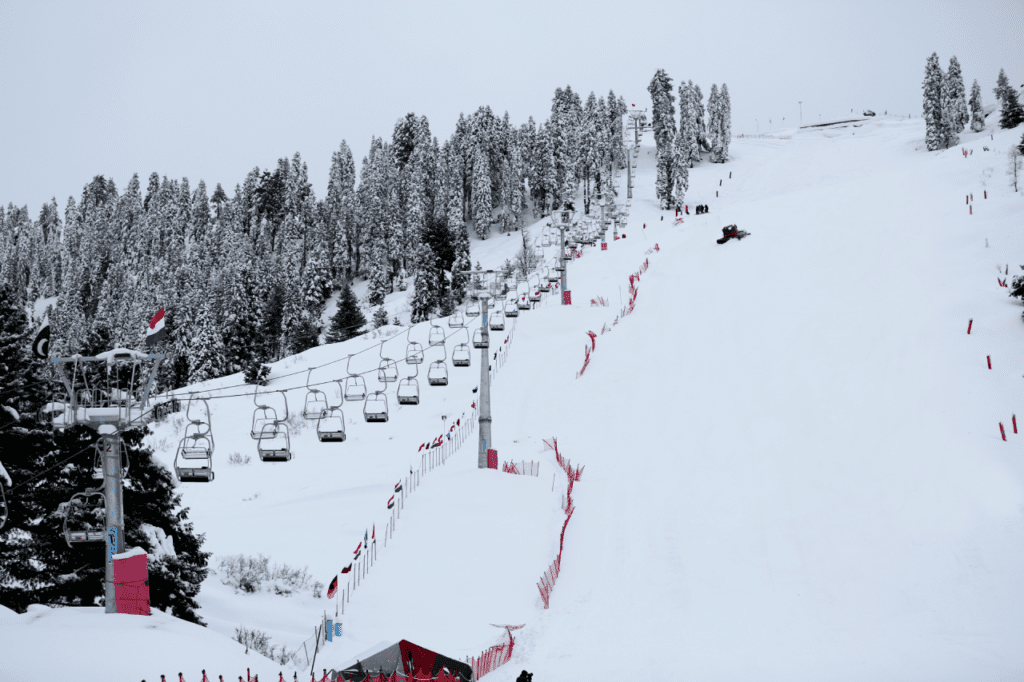
“I would say that future of skiing has begun here in Pakistan,” said Arif Khan member of Indian held Kashmir Ski Team.
Tania from Ukraine ski team was grateful to the Pakistan Ski Federation for the opportunity to improve her world ranking.
“This was a learning experience as much it was competition. It was a chance to learn a lot from international skiers,” said Fatima Sohail of Pakistan Women Ski team.
Festivities engulfed the closing ceremony for the international skiing championship 2017, that was held in Islamabad. Preparing to set world record of hosting the highest mountain marathon in the near future, grass skiing, ice hockey competitions, snow tubing and toboggan races besides many more events, the Winter Sports Federation of Pakistan promises rapid developments in the sport of skiing in Pakistan on multiple fronts. One of the major steps in this regard is the
exploration of the glacier that lies in the lap of Naltar mountain. When it become operational, skiers would be able to practice in the summer seasons.
The mountains of the great Karakorum Range are still rising and so is the sport of skiing. The story of skiing that started with the vision of Shah Khan is still being written in gold letters on the ski slopes of Pakistan.
